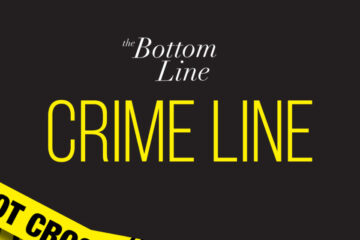Philosophical Forum 10/29
This past Tuesday, the Philosophy Department hosted a forum focused on the topic of Racial Profiling and Proximity to Crime hosted by philosophy professor Dr. David Atenasio.
The purpose of Philosophical Forums, as outlined by Frostburg Philosophy department Professor Dr. Skott Brill “is to supplement classroom discussions of important philosophical issues and topics with ones outside the classroom for all members of the campus community to enjoy, participate in, and learn from.”
In his presentation, Dr. Atenasio challenges arguments in support of finite versions of racial profiling. Dr. Atenasio argument stems from the idea that, as outlined by the forums banner, that “racial profiling attributes crime-propensity to individuals based on race instead of proximity to crime, with no justification for doing so.”
Dr. Atenasio began by arguing that racial profiling relies on a mistake. He referenced the incident in downtown Philadelphia, in which two men were arrested for waiting in a Starbucks location based on the color of their skin.
“Their reaction was very racist,” said Dr. Atenasio. “And many of our elected officials think that it is racist.” He goes onto mention the bills that in progress of being signed into law that would be put into place in order to stop further events like this from happening.
Dr. Atenasio lists and explains multiple arguments that are in support of racial profiling. Dr. Atenasio’s own response to these arguments is they are simply racist.
“The easiest way to end this discussion would be to begin by defining race. Race is actually a very contestable concept. And one you could defeat this entire argument is by saying there is no stable biological definition of race. Race is actually a political construction,” he noted.
Dr. Atenasio goes onto mention his other arguments in opposition to racial profiling in any sense. These arguments take into account when racial profiling does not make any sense, criminality is not evenly distributed between races, and crime is located within small pockets across the nation.
“Most people just don’t commit crime. Most people are not offenders. That’s why when you have one of these randomized approaches your not going to have much luck,” Dr. Atenasio said.
The context behind the crime is extremely important to understand the crime.
“If you just look in someone’s head, you’re not going to figure it out. You have to look at what are the characteristics of the neighborhood,” Dr. Atenasio mentions, “ The reality is the work in sociology with race and crime states that the crime propensity rates vary significantly by location. Just as the example I gave you, Prince George’s county has incredibly low crime rates and still majority African American.”
Dr. Atenasio discussed the statistics used in support of racial profiling saying, “ All the statistics for those who are making judgments about race may be inflated. The UCR, which is a data set used by the FBI, did not differentiate people who were arrested more than once a year.”
As the presentation came towards an end, Dr. Atenasio stressed the importance of individualistic explanations of crime differentials.




